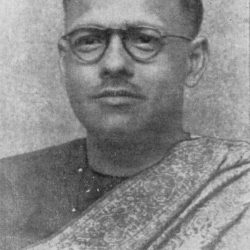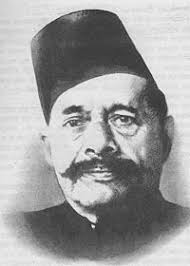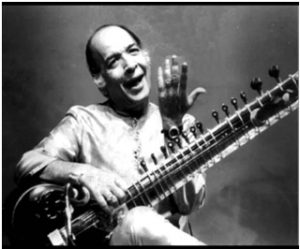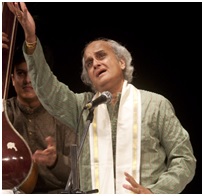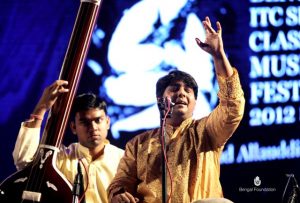| Told by | Sri Rantideb Maitra |
| Obtained by | Rajeswary Ganguly Banerjee |
| Date | 4th March,2017 |
| Place | Sri Rantideb Moitro’s Residence, Madur Daho, Kolkata |
| About the speaker | Renowned Music Collector and Music Connoisseur |
| Tags | Tawaif, 1920’s, Baijis, Classical Singer, Malkajan, Gaharjan, Manoda Sundari, Krisnabhamini, Indubala, Angurbala, Sarengi, Accompanist, Bandish, Alladiya Khan, Ustad, Gouri Shankar Mishra, Vishmadev Chattopadhyay, Dhrupad, Khayal, Thumri, Aghor Chakraborty, Gopeshwar Bandopadhyay, Satya Kinkar Bandopadhyay, Maharaja of Natore, Maharaja of lalgola, Maharaja of Panchokot, Jyotindra Mohan Tagore, Peara Saheb, Jadumoni, Sourindra Mohan Tagore, Kesarbai Kerkar, Alladiya Khan, Seth Dulichand, Shyamlal Khetri, Petron, Bombay |
| Language | English |
Sri Rantideb Maitra speaks :
Text version:
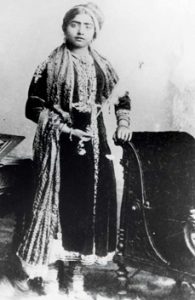
During the early part of 20th century, the Calcutta music scene was, at least the vocal music was dominated by Tawaifs and the Baijis, not that their male counter parts in the sense that the most popular classical singers of that point of time were all tawaifs, I mean you can name anybody,
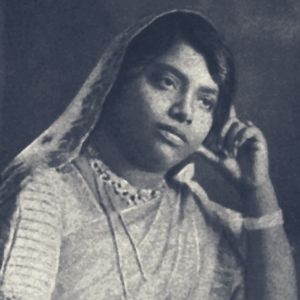
you can name Malkajan, you can name Gaharjan, you can name Manoda Sundari , Krisna Bhamini right up to Indubala, Angurbala, and everyone, and they were much more popular than their counter parts. Now where did they learn their music from? It’s a two way process, in some cases it was found that the tawaifs they themselves took fancy on some good looking male musicians and taught them music, they mostly learnt from Sarengi players, because Sarengi players use to you know accompany so many artists all over India, and they use to pay the sarengiwalas as per the Bandishes, may be one sarengiwalas has played with Alladiya Khan, and she liked the Bandish and maybe she will pay hundred rupees or fifty rupees or whatever it is, and sometimes they used to employ ustads themselves, and the terms of employment was, that ustad would you know never teach any other ‘Baais’. So it is you know captive ustad.
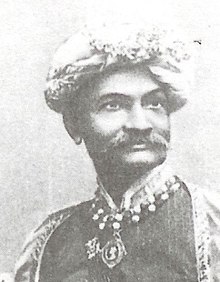
Like for example ’Gauri Shankar Mishra’ was captive to ‘Gauhar jaan’ and ‘Gauhar jaan’ only allowed ’Gauri Shankar Mishra’ when she became old and she moved away from Calcutta, at that point of time ’Gauri Shankar Mishra’ teach ‘Indubala’ and even ‘Vishmadev Chattopadhyay’ and lot of people. But till such time ‘Gauhar jaan’ did not release ’Gauri Shankar Mishra’, ’Gauri Shankar Mishra’ could only you know only teach ‘Gauhar jaan’ the Bandishes. Now in the case of the ‘ Dhrupadiyas’ of Bengal the situation was different because they never learnt from any ‘Tawaifs’ because mostly the ‘Tawaifs’ sang ‘Khayal ’and ‘Thumri’, but not ‘Dhrupads’,
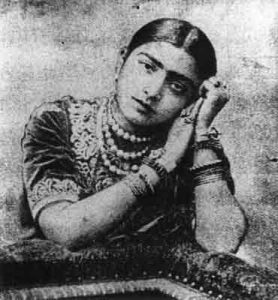
and the ‘Dhrupadiya’ of Bengal like ‘Aghor Chakraborty’ ‘ Gopeshwar Bandopadhyay’ or ‘Satyakinkar Bandopadhyay’, they avoided those class of musicians, not that they didn’t like them, they liked their music, but they never you know, they never imitated their style of music, and these ‘Tawaifs’ also, they were very eager to learn ‘Dhrupad’, but unfortunately their doors were shut to the middle class Bengali Brahmin ‘Dhrupad’ singers. So when, Maharaja Jyotindra Mohan Tagore, because Satyakinkar Babu was a employed by lots of the Maharajas at that time, like Maharaja of Natore was there, Maharaja of Lalogola, Maharaja of Pachakot and eventually he became court musician of Maharaja Jyotindra Mohan Thakur after Piyara Saheb left the court of Jyotindra Mohan Tagore. But one of the terms of his contract with the Maharaja was that he will never urge him or force him or to teach any ‘Tawaif’ because all the zamindars and rajas, they had their favourite ‘Taawaifs’, whom they used to groom.
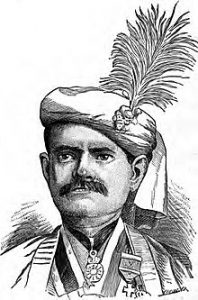
Like take the case of Jadumoni who was groomed by Shourindra Mohan Tagore, I mean even Kesarbai had one such, you know mentor, who paid for Kesarbai’s tuitions for Alladiya Khan. In the case of many ‘Tawaifs ‘ they were supported by many wealthy patrons to learn music. But Satyakinkar Babu never you know, taught any ‘Tawaifs’ and that was one of terms of, I mean I gave you social picture of that time also. So in this context it is important.
Can we please have the name of that person, who patronised Kesarbai Kerkar?
Yah, it was Seth Dhulichand, I mean there were lot of patrons but one was Seth Dhulichand, was originally from Kolkata, then The Khetri, Shyamlala Khetri , their shop is still existing, khetri jewellers, Calcutta, bhawanipore, Punya Cinema, khetri jewellers, and there were other patrons from Bombay, I mean I forget their names, but these two were definitely patron of Kesarbai from Bombay(Calcutta).
Verbatim by: Rajeswary Ganguly Banerjee
Picture Courtesy: Google
https://www.saregama.com/artist/angurbala-devi_491/album
https://www.google.com/search?client=firefox-b&biw=1366&bih=631&tbm=isch&sa=1&ei=3-A1W_3xKcHA0gT2o6SoDQ&q=gauharjan&oq=gauharjan&gs_l=img.3..0i10i24k1.4011.4604.0.5076.3.3.0.0.0.0.198.583.0j3.3.0….0…1c.1.64.img..0.3.578….0.ce_KKKtd9Hs#imgrc=1jHqNywIyy3aIM:
https://en.wikipedia.org/wiki/Sourindra_Mohun_Tagore
Edited & Designed: Ms. Rajeswary Ganguly Banerjee
Data processed at SAP-DRS Lab, Department of Instrumental Music, Rabindra Bharati University.


